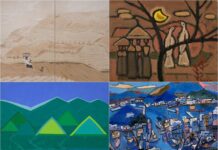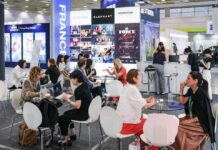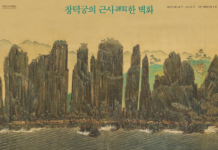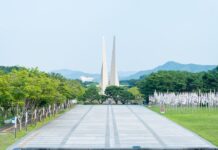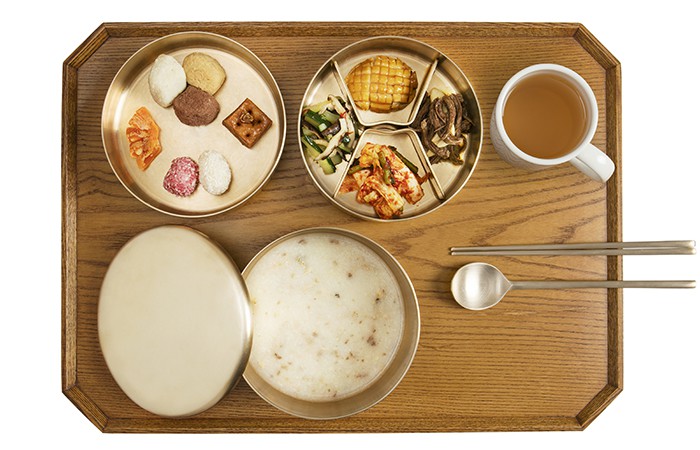
‘Midnight Dining Table’ is a new program offered at Gyeongbokgung Palace that gives visitors a chance to experience the late-night snacks enjoyed by the Joseon royal family. The spread consists of porridge with an assortment of side dishes, complemented by tea and dessert.
Starting next month, you will be able to sample an assortment of midnight snacks and desserts once savored by members of the Joseon royal family.
From Oct. 1 to 28, Gyeongbokgung Palace will be serving both its “Midnight Dining Table” (궁중 야별참) and “Royal Tea & Dessert” (생과방) to give visitors a chance to taste, and in some cases prepare, a variety of late-night snacks.
During Joseon times, the palace kitchen served the king and queen five different meals a day, consisting of an early breakfast called the chojobansang (초조반상, 初早飯床), followed by breakfast, lunch, dinner and then the yacham(야참), a late-night snack.
The Midnight Dining Table features a modern interpretation of the yadasobangwa (야다소반과, 夜茶小盤果), literally meaning, “a small tray of tea and fruit for midnight,” the last and final spread of nibbles before the king’s bedtime.
The yadasobangwa consists of porridge made with rice, sweet rice and sorghum, and three side dishes, including abalone pickled in soy sauce (전복 간장초절임), braised and pickled cucumber (오이숙장과), and marinated beef strips (장똑똑이). This is accompanied by a plate of desserts, including gyeongdan (경단), three-colored rice ball cakes, yakgwa (약과), or cinnamon-honey cookies and gotgam orim(곶감오림), dried persimmons filled with pine nuts. A special tea, hyangnyeonda (향련다, 香連茶), which King Jeongjo, the 22nd Joseon monarch, drank whenever he fell ill during his childhood, rounds off the meal.
People wishing to try this midnight spread can do so at Gyeongbokgung’s Sojubang, the palace’s royal kitchen, where the meals will be served daily between Oct. 1 to 28, excepting Tuesdays. There are two time slots, once at 7:10 p.m. and then at 8:10 p.m. Participants can enjoy their late-night snacks while listening to a live concert featuring traditional Korean instruments.
Up to 60 people may sign up for each session, and the cost is KRW 23,000 per person. Tickets can be purchased online at Auction Ticket (ticket.auction.co.kr).
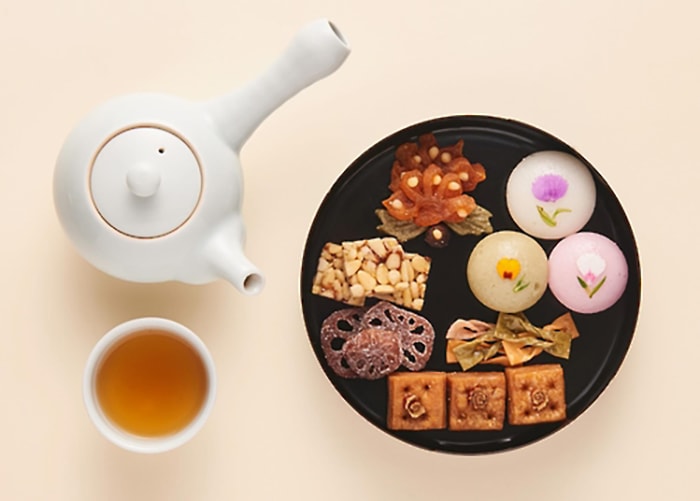
The Royal Tea & Dessert event, held at Gyeongbokgung Palace, gives visitors a chance to taste the sweet and savory morsels and beverages enjoyed by Joseon kings.
The Royal Tea & Dessert event, meanwhile, will be held in the Sengmulbang (생물방), a section of the royal kitchen where chefs used to prepare snacks and other desserts. The event will run from 11:00 a.m. to 5:00 p.m. daily, excepting Tuesdays.
The special menu includes the geongongtang (건공탕, 建功湯), a ginseng-infused tea that King Yeongjo, Joseon’s 21st monarch, drank to preserve his health. You can also taste a tea made from milkvetch root and ginseng, enjoyed by the 18th monarch, King Hyeonjong, and samicha (사미차, 四味茶), an infusion of ginseng, orange peel, and ginger preferred by King Seonjo, the 14th monarch. You may complement the herbal teas with a platter of steamed rice cakes and cookies made with flour, rice wine, cinnamon and ginger juice.
There is no need to make reservations for the Royal Tea & Dessert, as tickets are sold on-site. The teas are KRW 5,000 each and a sample platter costs KRW 10,000.
When you’re done with the food tasting, enjoy a stroll to the Gyeonghoeru (경회루) building inside Gyeongbokgung Palace grounds where traditional dance concerts will be held each evening until Oct. 28.
By Lee Hana
Korea.net Staff Writer
Photos: Cultural Heritage Administration
hlee10@korea.kr




